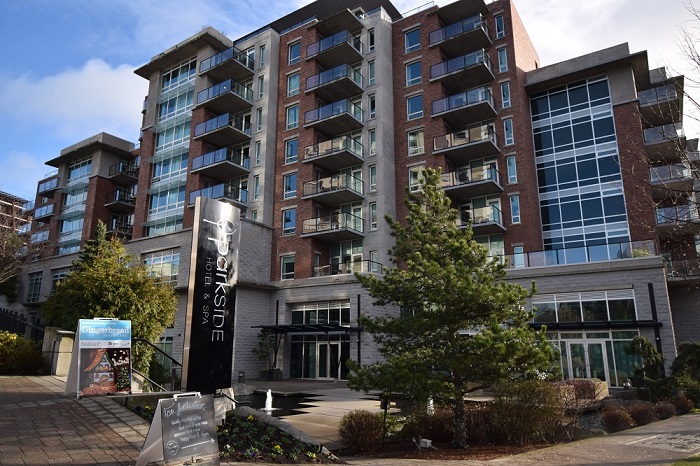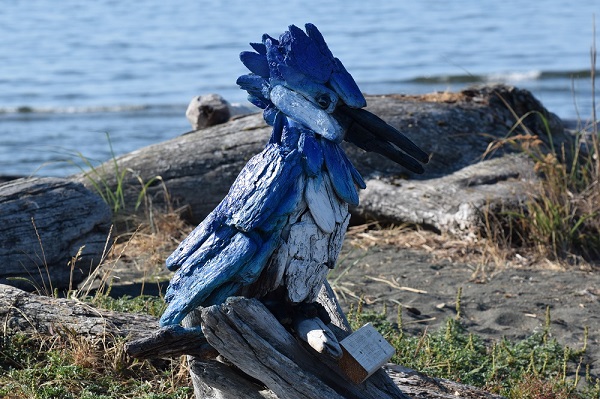- Victoria
- Guide to Van Isle
- Emergency Preparedness
Preparing for an Emergency in Victoria BC
Nobody likes to think about it, but preparing for an emergency when you visit - or live in - a high risk area is essential. It could mean the difference between life and death.
Disclaimer: I receive a small commission from some of the links on this page.
Here in Victoria it is unlikely you will encounter a hurricane or a tornado, but we are subject to some fairly high winds that at times result in lost power and cancelled ferries and seaplanes.
Other potential disasters to be prepared for in this part of the country are wildfires, tsunami, and the one on most people's minds - earthquakes!
Earthquakes are the most probable natural disaster in Victoria with minor quakes occuring almost daily. The intensity, depth and proximity to the island are factors in whether or not you will actually feel them.
That said, scientists can't predict when or where they'll happen, or the severity. And many people believe it is only a matter of time before the "big one" strikes.
Preparing for an emergency by knowing what to do is your best defence in staying safe.

Preparing for an Emergency - Earthquake
Whether you live here or are visiting, it is important that you and your family are aware of the safest places in each room to be when the shaking begins. The safe spots are against an inside wall, or under sturdy tables or desks.
Drop, cover and hold are what you need to practice and remember in the event of an earthquake. If you are indoors, you want to stay indoors. Drop under a sturdy piece of furniture, cover your head and body as best you can and hold onto whatever is covering you. Stay away from windows, mirrors and other hanging objects or large pieces of furniture that are not anchored to the wall.
If you are outside, then you are safest staying outside until the shaking subsides. Be sure to move out to an open area and away from anything that could potentially fall on you including power lines.
If you are in your vehicle, pull over to the side of the road, turn off the engine and stay in your vehicle. Be sure to avoid stopping near tunnels, bridges and power lines.
If you are in a tsunami hazard zone, move to higher ground immediately.
Being able to remain calm in any emergency situation is very important. People panic when they see others panicking – even if they are not sure why. Remaining calm will aid you and everyone around you in making rational decisions.
It will also ensure that you will be able to give clear information to emergency personnel should there be a serious medical emergency. The emergency number in British Columbia is 911. You do not need to call to report an earthquake - only call if you or someone near you has experienced a medical emergency, You will be asked for your name and address, the location of the injured person and the type of injury they have sustained. Once you are sure that help is on its way, ensure that there is no danger to yourself or the victim. In a calm manner, assure the victim that help is coming. Begin first aid if you are qualified.
When preparing for an emergency, it is recommended to have at least one well-stocked kit that contains everything for a medical emergency and a natural disaster in one place that everyone in the family can find. A first aid kit alone will do little good if there is a disruption to services and you are without food and water. A good rule of thumb when preparing for an emergency such as an earthquake, it to have enough food, water and medication for 72 hours for each person and pet in your household. The kit shown here has enough food, water and first aid supplies for 4 people for 72 hours. Other kits for a single person are available.
It is suggested that you keep one first aid kit in each of your vehicles and one in your primary residence as well as one at any vacation homes, trailers or with your in camping gear. Each kit should contain items that are specific to their storage location. Click here for a complete list of emergency supplies to be included in a kit. When staying at local hotels, familiarize yourself with emergency kits that may be stored in the lobby or behind glass in the hallways and take note of the emergency exits.
You must be able to easily locate your survival first aid kit or it will do you little good. It is also highly recommended that you review the contents annually. You may not use any items throughout the year but you will still want to check for expiry dates. Also, items such as bandages will lose their “stick” eventually and when packaging becomes tattered and ripped on items such as sterile gauze – it isn’t so sterile anymore! These items should be replaced.
Preparing for an emergency is as much about having the right supplies for the situation as it is about knowing how to use them. One of the best gifts you can give your family is learning CPR and completing a first aid course.
As a visitor in Victoria, you can take comfort in knowing that we take preparing for an emergency very seriously. Annually many businesses and schools participate in the Great British Columbia Shake Out. Taking part in this annual exercise ensures we are familiar with the most up-to-date practices of staying safe in an emergency and we'll do our best to help you if needed.
Recent Articles
-
Where to Stay in Victoria, BC: A Comprehensive Guide
Jul 10, 24 12:42 PM
Choosing the right place to stay can significantly enhance your experience. This guide provides tips and ideas to help you decide where to stay in Victoria. -
Best Hotels in Downtown Victoria: My Top 10 Picks
Jul 09, 24 06:08 PM
Don’t risk being disappointed with your accommodations. Get trusted information about the 10 best hotels in downtown Victoria from a verified local. -
Horse Drawn Carriage Rides in Victoria BC: A Journey Through Time
Jun 08, 24 01:38 AM
Experience the beauty and heritage of Victoria BC through a horse drawn carriage ride.



